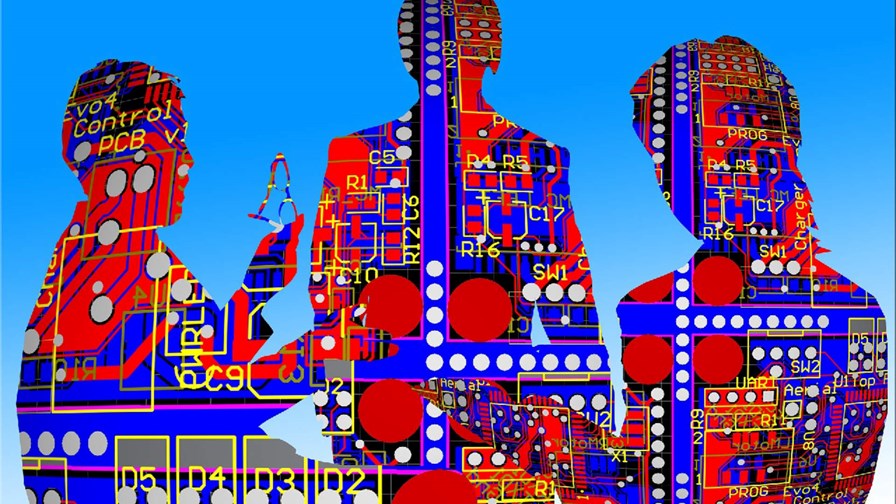
© Flickr/cc-licence/ManyWonderfulArtists
- Many consumers want interaction with another human being not automated services
- New YouGov survey shows about half of Brits think AI will have a negative effect on them
- Chatbots and IVR systems particularly unpopular
- But Amazon Alexa and Google Home are the acceptable face of AI
As a Yorkshireman born and bred, I can say with some authority that the Brit's aren't big on changes to the status quo. In a country where it can take a couple of hundred years to grow a halfway decent lawn, some slow adaptations to the even tenor of life can happen, but preferably only over several generations so that nobody notices that we've actually given up burning witches.
But sudden change is always anathema, just breathe in the poisonous atmosphere as the febrile Brexit debacle inches along crushing the nation under a blood-stained glacier of party political polemic and ripping the UK apart.
Things are slightly different on the technology front. The British are as enthusiastic adherents to mobile comms and social media as the rest of the world but, it seems, we might be drawing the line when it come to AI.
The results of new (and, ironically enough, online) survey conducted by YouGov, the international Internet-based market research and data analytics organisation headquartered in the UK, shows that 44 per cent of the great British public are convinced that Artificial Intelligence will have a negative effect on them and 52 per cent believe AI will make dealing and interaction with businesses, companies and organisations of a every stripe increasingly impersonal, unaccountable and annoying.
The survey was commissioned by Webhelp, a business process management and customer experience consultancy. It shows that 45 per cent of UK consumers have not yet used any type of AI, but they don't like it anyway. What's more, those that have actually had AI interactions profoundly disliked the experience having found it to be inefficient, scary and irrelevant to their needs.
What Brits want, especially when they are buying a product, follow up on an order, or make a complaint, is to deal with another human being and when they can't, tempers fray and distrust and dislike of AI solutions increases. Interestingly though, consumers tend to be more sympathetic to and satisfied by interaction with smart home assistants such as Amazon's Alexa or Google Home, probably because the people owning such devices have voluntarily chosen to have them in their homes and have been willing to pay for the privilege.
Acceptance of AI interaction is a very different matter when it comes to having a chatbot or a Kafkaesque IVR system foisted onto you by a faceless corporation or brand that claims to be customer-centric but then demonstrates in so many ways that it is nothing of the sort.
The YouGov survey found that 27 per cent of respondents had had dealings with chatbots and IVR and 56 per cent and 38 per cent respectively found the experience tiresome, tedious and unsatisfying. However, 77 per cent of those with an Amazon Alexa or Google Home were pleased with the AI experience such devices provide.
Asked to peer into a virtual crystal ball and look ahead by five years, 26 per cent of respondents opined that increased deployment of AI will make interactions with companies "much worse". Just 19 per cent said things would improve. Meanwhile, 52 per cent said AI interactions will make companies and brands more impersonal, 46 per cent said AI will threaten consumer privacy and security and 43 per cent said AI will affect human-to-human interactions for the worse.
As might be expected the way people feel about AI is also affected by demographics. For example, 90 per cent of the over 55 age group strongly prefer to speak directly with another human being when dealing with companies and brands while 56 per cent of 18-24 year olds are happy to interact with chatbots and 47 per cent of them are content to negotiate IVR systems as opposed to 35 per cent of the over 55's.
Finally, 60 per cent of the older age group think AI will not have any positive impact on their lives going forward while 26 per cent of 18-24 year olds think AI will be of positive benefit to them - not that they'll have any choice but to use AI anyway.
Commenting on the survey, Webhelp CEO David Turner said: “We know from anecdotal evidence that human-to human contact is important, but this study goes even further, highlighting the degree to which people favour it over AI-powered customer service tools and are negative about AI’s potential future impact.
Mr. Turner added, "Good customer experience cannot be delivered by technology alone."
Email Newsletters
Sign up to receive TelecomTV's top news and videos, plus exclusive subscriber-only content direct to your inbox.




